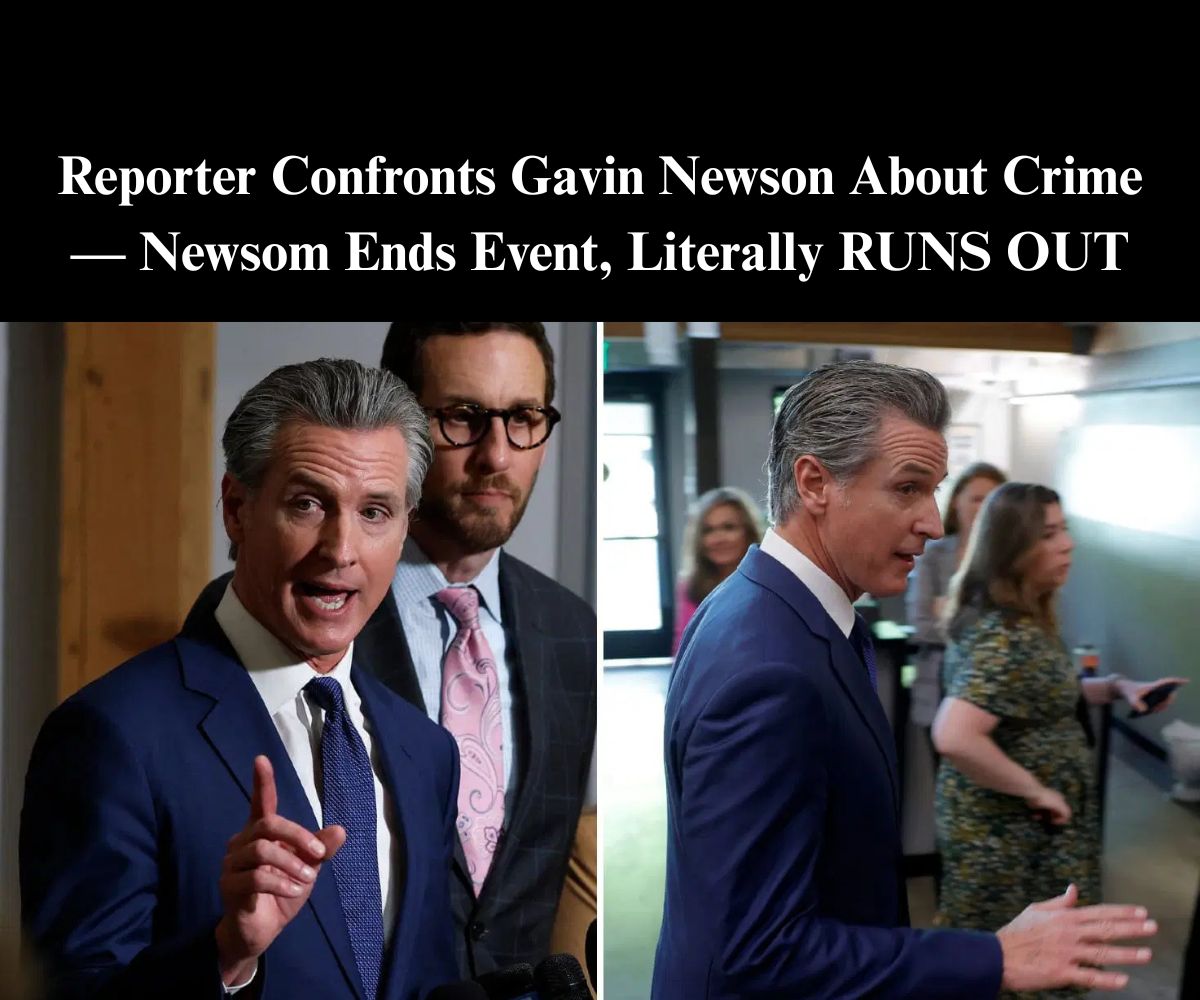Gov. Gavin Newsom announced Thursday that California will expand its statewide crime suppression program, deploying additional California Highway Patrol (CHP) teams to six regions, including major metropolitan areas such as San Francisco, Oakland, Los Angeles, San Diego, and the Central Valley.
While at a press conference, Newsom was confronted about the public perception that the governor is sending mixed messages by denying there is a crime problem in California while expanding law enforcement operations.
The governor also said the expansion builds on existing partnerships between CHP and local law enforcement agencies to target violent crime, carjackings, robberies, fentanyl trafficking, and auto theft.
“We’re gonna be expanding this operation, building on the success that has now included over 9,000 arrests statewide,” Newsom said.
The crime suppression initiative began in Oakland and San Francisco, where CHP officers have assisted local police in recovering more than 4,000 stolen vehicles and making arrests tied to organized retail theft and narcotics distribution.
“These crime suppression teams will provide critical support to our local partners by focusing on crime where it happens most. By combining resources, intelligence and personnel, we can better disrupt criminal activity and strengthen the safety and security of communities across California,” Duryee said.
The expanded program will now operate in six of the CHP’s eight districts statewide. In the Bay Area, officials said residents should not expect major changes since CHP teams are already active in Oakland, Vallejo, and surrounding communities.
Vallejo City Council member Alex Matias also credited CHP’s presence, saying it has “successfully complemented other measures we have recently taken to improve public safety in Vallejo.”
Despite the expansion, CHP continues to face staffing challenges. The agency remains several hundred officers short, though officials report progress in recruitment and retention.
“Success is not a place or a definition. Success is the direction. There is no having it as relates to the issue of crime suppression,” he said.
The governor’s announcement comes as President Donald Trump has deployed National Guard troops into U.S. cities, including Washington, D.C., to address violent crime. Trump has also suggested similar deployments to other urban areas such as Chicago and Los Angeles. Newsom has sued to block the deployment of federal troops in California, and a federal court is expected to issue a ruling that could set precedent for how such actions are handled in the future.
When asked whether his initiative was intended to head off possible federal intervention, Newsom denied the move was a response to Trump.
“We’re not reacting to, responding anything. Quite the contrary. With one caveat: the community wants to see more. And we are trying to be responsive to the people we serve,” he said. “As it relates to the president in particular, he’s doing things to people, not with people.”
Political observers noted the overlap in timing between Newsom’s announcement and the White House’s federal deployments. Dan Schnur, a political science professor at UC Berkeley and USC, said Newsom is attempting to demonstrate his own approach to crime.
“Rather than coming across as someone who doesn’t think crime is a problem, he’s trying to outmaneuver Donald Trump,” Schnur said. He added that Trump’s use of the National Guard puts Democrats in a challenging position: “Do they agree with what the president’s doing, or do they sound like they’re defending the status quo?”
While statistics on arrests and vehicle recoveries have been highlighted by the state, Schnur said public perception may ultimately depend more on visible enforcement.
“Gavin Newsom is smart enough to know that statistics aren’t nearly as powerful a message as National Guard troops. He recognizes he has to send a much more tangible signal as well,” Schnur said.
Governor Newsom’s anti-crime posturing comes amid speculation that he is preparing to make a presidential campaign run in 2028. Voter concern about crime in Democrat-run cities is shaping up to be a burning issue ahead of the midterm elections, as well as ahead of the next presidential election.
